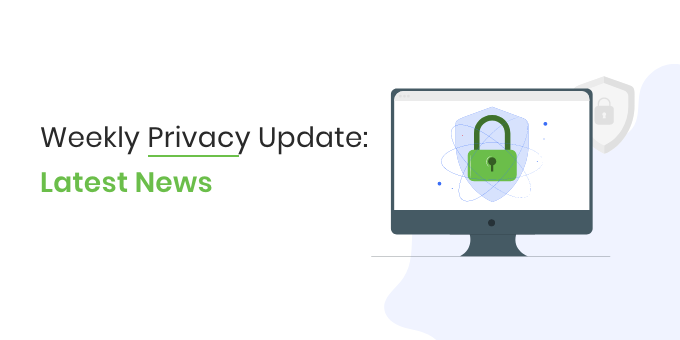Week in Review
There have been a couple of late-breaking privacy news developments this week.
Among the top news, the UK’s Supreme Court has rejected a claim that sought billions of pounds in damages from Google over alleged illegal tracking of millions of iPhones. But he did not rule out the possibility of future mass-action lawsuits if damages could be calculated. The Judgement said that the case had a “real chance of success” if pursued by the claimant as an individual, instead of as a mass action.
Also, the Belgian Data Protection Authority preliminary report revealed that IAB Europe is expected to be in breach of General Data Protection Regulations (GDPR).
According to the most recent earnings reports from Facebook and Snapchat, Apple’s mobile privacy measures are having a material impact on the ad businesses of some of its Big Tech competitors.
Furthermore, Yahoo officially pulls out its businesses operations in China citing an increasingly challenging operating and legal environment.
And lastly, a British data collecting firm admitted the violation of the data privacy regulations on selling their individual location data without their consent.
Top Stories and Updates
Lloyd v Google: Google wins appeal in UK lawsuit claiming privacy breach
The UK’s Supreme court has rejected a claim seeking billions of pounds in damages from Google for illegally tracking millions of iPhones. The Lloyd vs Google case began with the finding that Google secretly tracked the internet activities of millions of iPhone users on Safari browser. Richard Lloyd, the former director of Which? magazine claimed that Google breached the core data protection principles concerning more than 4 million Apple iPhone users. Read more here.
IAB Europe expected to be in breach of GDPR
According to the Belgian Data Protection Authority preliminary report, the online advertising business and its trade organisation, IAB Europe Transparency and Consent Framework (TCF) have deprived hundreds of millions of Europeans of their fundamental rights and failed to comply with GDPR principles. Google and the entire tracking industry rely on IAB Europe’s consent scheme, which will now be judged to be illegal. Read more here.
Apple’ privacy change eats rivals’ businesses
Reuters examines the impact of Apple’s April privacy update on social media platforms. Users were able to opt out of advertiser tracking following the update. According to Facebook, the change will crush small businesses because they will no longer be able to find local customers to target with ads in a cost-effective manner. Since the change, Meta Platforms, Snap, and Peloton Interactive have all reported that they have fallen short of their revenue targets. Read more here.
Yahoo officially pulls out business operations in China
Last week, the American service provider, Yahoo, decided to pull out from China, citing the country’s increasingly challenging business and legal environment. Yahoo is the latest foreign technology company to leave China. The company said in a statement, “in recognition of China’s increasingly difficult business and legal environment, Yahoo’s suite of services will no longer be accessible from mainland China as of November 1.” Read more here.
Location data collection company admits GDPR privacy breach
A British data collecting company named Huq that sells people’s location data has admitted that some of its information was obtained without the users’ consent. According to the BBC, its app partners had not sought user consent. However, The company said in a statement that it was aware of two “technical breaches” of data privacy regulations and had requested their app partners to rectify their code and republish their apps. Read more here.
Want to be sure that your company has all of the components it needs to build a comprehensive privacy program?
Request a demo from our team of privacy experts to see how you can build a program that helps you meet your organisation’s compliance goals.
Book a free demo.

